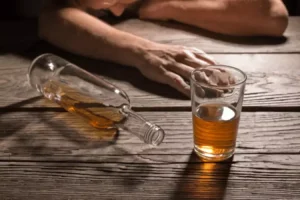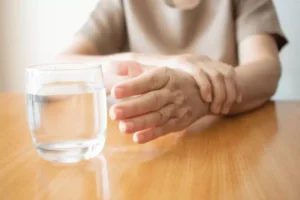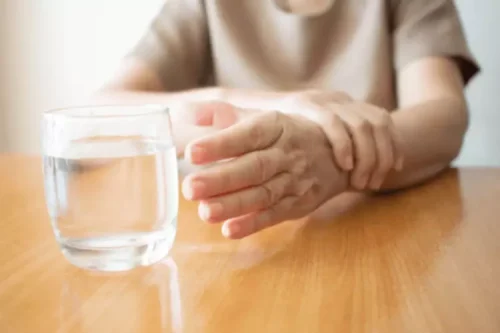
Process groups are focused on self-exploration and giving/receiving feedback. They provide a safe environment in which members can practice newfound interpersonal skills and behaviors. Process https://ecosoberhouse.com/ groups are mostly unstructured with no singular topic of discussion.
- It brings people with similar needs together in a supportive, encouraging, and validating way.
- This impacts the integrity of the group and opens things up for additional disruptive behaviors.
- The term “support group” can be defined as a recovery modality designed to foster a sense of community among peers during and after drug and alcohol rehab.
- After the session, clients share the meaning of their art with other group members.
- They can also help participants develop their communication skills and experience strength through vulnerability.
Discussing Triggers
- Relapse rates for drug and alcohol use are comparable to those of other chronic diseases, such as hypertension and diabetes.
- Group members can empathize/relate, share their observations and/or how it made them feel, and offer feedback.
- Participants can boost their self-esteem and create positive connections.
- By breaking down larger goals into manageable steps according to participants’ capabilities, the group gains a sense of accomplishment and enhanced self-esteem.
- People can openly share their thoughts and feelings, reduce self-stigma and shame, and help each other process and grow from difficult experiences or emotions.
These group activities can be applied to group settings to improve personal growth and self-esteem. According to Alan Wolflet (2004), group activities for grief and loss should help members with the six needs of mourning. Each pair is asked to report to the group on three commonalities discovered. This activity helps individuals feel more connected and provides a sense of belonging. Group therapy activities can be very beneficial for individuals struggling with loneliness.
Using Substance Abuse Evaluations to Help Identify Treatment Options
However, it’s crucial to understand that relapse should not be viewed as a treatment failure. Substance abuse treatment is a complex and multifaceted journey, and one of the most effective tools in this process is group therapy. Whether you or a loved one is seeking help, learning a few group therapy topics can help you know what it can do for you; it can be the first step towards a healthier and happier life.

Substance Abuse Group Therapy Activities for Recovery

For example, you might decide that you will exercise instead of sitting on the sofa while watching television. Also, please leave a comment below if you have other ideas, or would like to add to the substance abuse group activities discussion. Icebreaker games inject fun and playfulness into the group dynamics, making it easier for members to open up and participate actively.

These games could involve sharing something about oneself based on a prompt, playing word association games related to recovery, or even engaging in light-hearted team challenges. Icebreaker games not only foster a sense of inclusivity but also help combat nerves and hesitations that can arise when discussing sensitive topics. Being a part of a group can help establish a source of accountability for group members. Group sessions provide them with a set time within their routine to focus on their recovery. Group sessions can allow members to work through challenging emotions such as shame and guilt. Listening to what other members share can provide a sense of validation and normalcy for members who may have thought that they were alone, or wrong for feeling as they do.

The following three PDF downloads are lists of ideas/questions for groups. A group therapy resource guide with recommended books, topic ideas, group activities, practical tips, and more. This motivation and focus on achievement as a team act as positive reinforcements, reducing the risk of relapse by redirecting energy toward purposeful pursuits. Treatment centers use group interventions to help people recover from opioid addiction, alcohol use disorder (AUD), and other SUDs.

Gratitude Lists
Group therapy sessions focusing on relapse prevention equip individuals with the skills and mindset needed to overcome setbacks. Facing drug addiction or alcohol abuse can be an isolating experience, which is one of many reasons why treatment providers use group therapy and peer support in their programs. Activities in a group setting keep clients engaged and help them build bonds with peers.
Join 550,000+ helping professionals who get free, science-based tools sent directly to their inbox. Do something creative and have the group come up with a piece of artwork collaboratively. They might use thumb or handprints to create a picture or use individual talents to contribute to a mixed-media piece of art. Have group members end the session by going around the room and sharing a take-home affirmation they learned or recognized during the meeting. Closing activities should highlight important aspects and reinforce any themes of the session. These activities help to unite group members and encourage them to work on themselves outside of the session before the next meeting.
Participants support and nurture each other like a family by reinforcing good behaviors and helping each other cope during difficult tasks. These groups further encourage exploration of emotional and interpersonal conflicts, confrontation about denial and harmful behaviors, and discussion about responsibilities and limitations. They add structure to chaotic lives and provide a safe environment in which to practice newly developed skills. Through the group dynamic, clients foster hope and examine core issues that exacerbate their addictive disorders. They also work to develop their communication skills and learn to engage in fun, healthy social experiences.
Practicing Mindfulness Through Meditation
It provides a one-on-one therapeutic relationship where individuals can explore their thoughts, feelings, and behaviors in a confidential and supportive setting. The therapist helps individuals develop coping strategies, build resilience, and identify triggers and patterns that may hinder their recovery. Group therapy sessions typically consist of a small group of individuals who are all struggling with substance abuse. These groups are led by a trained therapist who facilitates discussions and activities designed to promote healing and growth.
